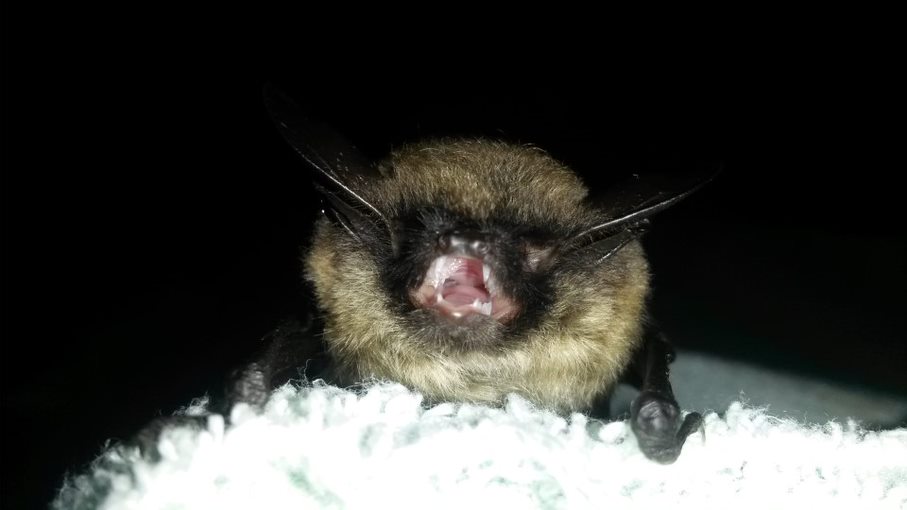Support Us
Since 1979 more than 140,000 animals have been treated by Wildlife Rescue.
Thanks to the support of individuals like you, Wildlife Rescue can provide a lifeline for animals in distress.
Over the last couple of weeks, Wildlife Rescue has admitted multiple bats including two Silver-Haired Bats, a Little Brown Bat, and a Big Brown Bat.
This year, winter bat sighting is on the rise and Wildlife Rescue is encouraging the public and communities to be alert and safe when witnessing abnormal bat activity in your local communities.
Bats are the second-largest group of mammals in the world and are found everywhere – on every continent (except Antarctica), and in a large variety of ecosystems including deserts, isolated islands, and even polar regions.
Bats can live in a variety of habitats including deserts, woodlands, caves, suburban communities, and cities. Because they are nocturnal, they hunt at night and roost during the day. Bats play an important role in our environment directly and behind the scenes. Bats help pollinate plants and at night they act as “pest control agents” eating thousands of mosquitoes and other insects in an hour.
The BC BAT Program suspects the winter bat sighting may be a result of WNS, a fungal disease known as white-nose syndrome that grows on bats and causes them to wake up from their hibernation causing them to burn their fat and energy stores. It then leads them to act abnormal and search for food water to replenish fat reserves to continue their hibernation. Sadly, this abnormal behavior puts stress on their bodies and the normal food sources can be depleted in the winter and bats die due to dehydration, starvation, and other stressors.
If you witness abnormal behavior that includes the bat being grounded, hitting objects, difficulty flying, high-pitched sounds please contact the BC BAT Program here or by phoning 1-855-922-2287 ext. 23. The proper assessment of bats provides key information to track the spread of white-nose syndrome and keep humans and bats safe.
Remember some sightings are common and do not require human intervention. Bats may be seen on warm winter evenings. Healthy bats may wake up to drink or even eat if insects are active. Some species of bats are naturally active during the winter. Bats may also become active following a disturbance near their hibernation site.
If you come across a dead or weak bat it is important to keep yourself and the bat safe especially during the spread of COVID-19. Please call a professional for guidance to ensure personal protective gear is used when safely rescuing the bat and to avoid retrieving bats if you are sick or under quarantine. We never recommend any contact or coming near a bat due to diseases such as rabies, and other transmittable zoonotic diseases.

If bats have taken up residence in your home, and need to be evicted, this can be done safely outside of the maternity season (from May to September) by installing a one-way exit device. It is best to consult with BC BATS who can help guide you through this process
If you witness abnormal behaviours such as bats on the ground, having difficulty flying, or with visible injuries, please contact Wildlife Rescue’s Support Centre at (604) 526-7275. Do not touch the bat!